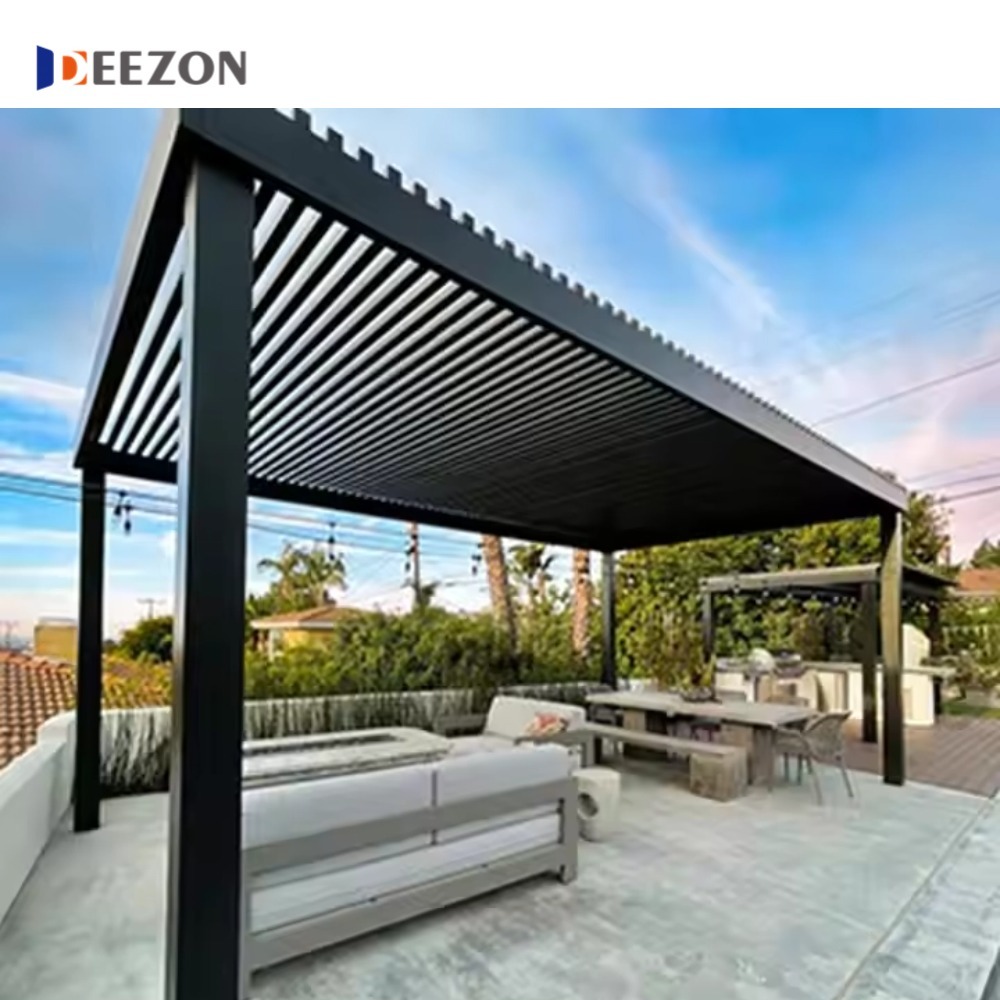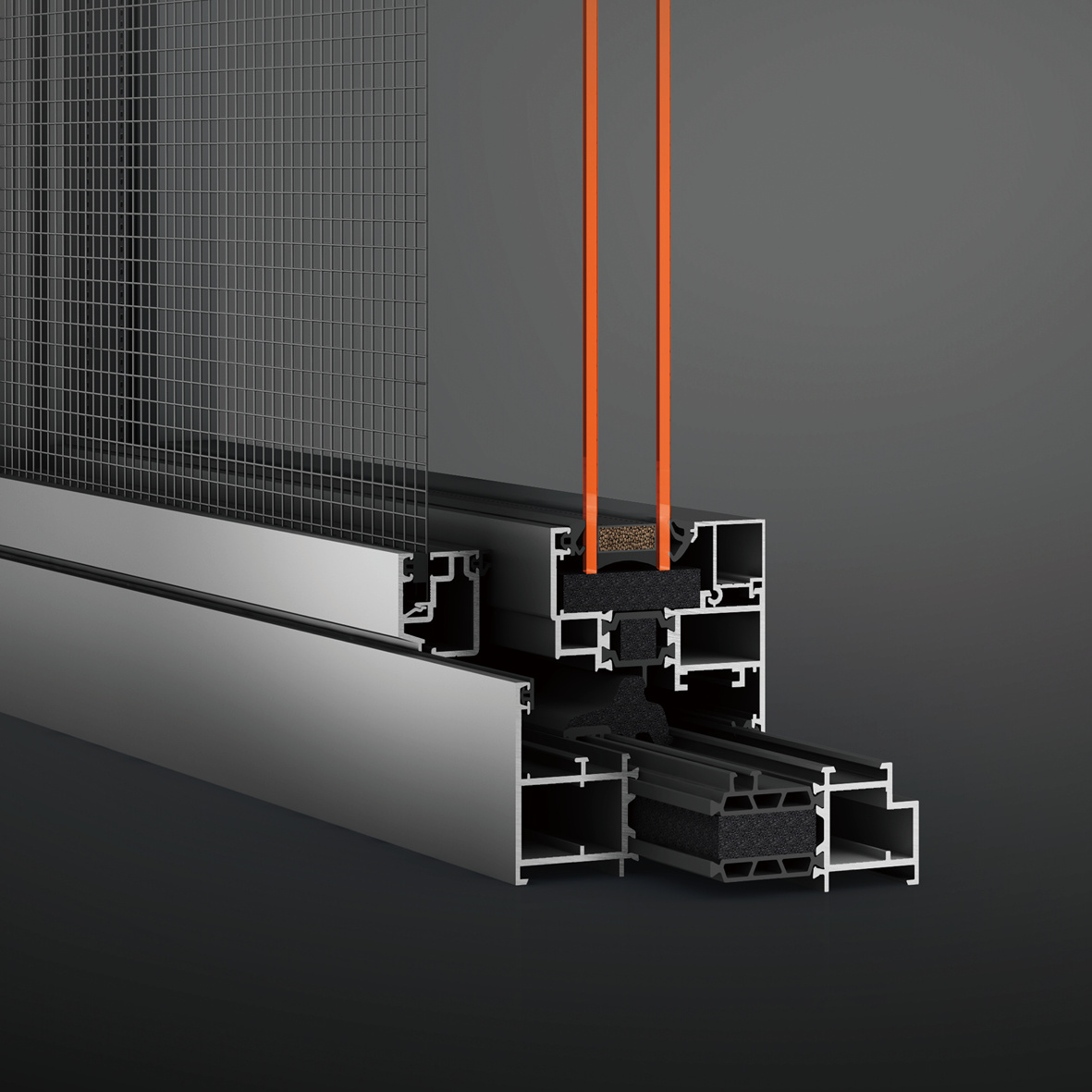Foshan Deezon Windows and Doors Co.,Ltd.
The Environmental Benefits of Choosing a Louver Roof for Your Outdoor Space
Sep 13,2025

The Environmental Benefits of Choosing a Louver Roof for Your Outdoor Space
In the quest for sustainable living, homeowners and businesses alike are increasingly exploring innovative architectural solutions that not only enhance the aesthetic appeal of their outdoor spaces but also contribute positively to the environment. One such solution is the **louver roof**, a versatile design feature that offers numerous environmental advantages. This article delves into the myriad benefits of choosing a louver roof for your outdoor area, highlighting how it can transform your space into an eco-friendly oasis.
What is a Louver Roof?
A louver roof is a type of roofing system that incorporates adjustable slats (or louvers) that can be opened or closed to control sunlight and airflow. This dynamic feature allows homeowners to create a customizable outdoor environment that adapts to various weather conditions. By harnessing the power of natural elements, a louver roof not only enhances comfort but also promotes environmental sustainability.
Energy Efficiency and Cost Savings
Reducing Energy Consumption
One of the primary environmental benefits of louver roofs is their ability to enhance energy efficiency. Traditional outdoor structures often rely heavily on artificial heating and cooling systems, leading to increased energy consumption. In contrast, a louver roof allows for natural ventilation, reducing the need for air conditioning in hot weather. By adjusting the louvers to block direct sunlight, homeowners can maintain a comfortable temperature without relying on energy-intensive cooling systems.
Lower Utility Bills
By minimizing energy consumption, louver roofs can significantly lower utility bills. Homeowners can enjoy the benefits of a comfortable outdoor environment without the financial burden of high energy costs. Over time, these savings can accumulate, providing a substantial return on investment while contributing to a greener planet.
Promoting Sustainable Water Management
Rainwater Harvesting Potential
Louver roofs can also play a crucial role in sustainable water management. With the proper design, they can direct rainwater runoff into collection systems, allowing homeowners to harvest rainwater for irrigation or other non-potable uses. This practice not only conserves water but also reduces the strain on local water systems, making louver roofs an environmentally friendly choice.
Minimizing Runoff and Erosion
In addition to facilitating rainwater harvesting, louver roofs can minimize runoff and soil erosion. By allowing water to be absorbed by the ground rather than flowing off the roof at high speeds, these systems help maintain the natural landscape and reduce the risk of flooding in surrounding areas. This sustainable approach to water management is particularly beneficial in regions prone to heavy rainfall.
Enhancing Outdoor Comfort and Biodiversity
Creating a Comfortable Outdoor Environment
Another environmental benefit of louver roofs is their ability to enhance outdoor comfort. By providing shade and reducing heat gain, louver roofs create a pleasant outdoor atmosphere that encourages people to spend more time outside. This increased engagement with nature can lead to a greater appreciation for the environment, fostering a sense of responsibility for its preservation.
Supporting Biodiversity and Ecosystems
The installation of a louver roof can also contribute to local biodiversity. By creating shaded areas and protecting plants from harsh sunlight, these roofs can support the growth of various plant species, which in turn attract beneficial insects and wildlife. This enhancement of local ecosystems not only promotes biodiversity but also helps maintain a balanced environment.
Customizable Aesthetic Appeal
Architectural Versatility
Louver roofs come in various styles, materials, and colors, allowing homeowners to customize their outdoor spaces to suit their preferences and architectural aesthetics. This versatility means that louver roofs can seamlessly integrate into existing structures, enhancing the overall visual appeal of a property while maintaining environmental integrity.
Natural Light and Ventilation
By adjusting the louvers, homeowners can control the amount of natural light and ventilation that enters their outdoor space. This feature not only enhances the comfort of the area but also reduces the reliance on artificial lighting and ventilation systems, further contributing to energy conservation.
Durability and Longevity
Resistance to Weather Elements
Louver roofs are typically constructed from durable materials designed to withstand various weather conditions, including rain, snow, and UV exposure. This resilience means that louver roofs require less frequent replacement or maintenance compared to other roofing options, reducing waste and the environmental impact associated with manufacturing and disposal.
Long-Term Investment in Sustainability
Investing in a louver roof is not just about immediate benefits; it is a long-term commitment to sustainability. The durability of these roofs means that they can provide environmental benefits for many years, making them a smart choice for eco-conscious homeowners.
Improving Indoor Air Quality
Natural Ventilation Benefits
In addition to enhancing outdoor comfort, louver roofs can significantly improve indoor air quality. By allowing for better airflow and natural ventilation, they help reduce the buildup of indoor pollutants and allergens. This improved air quality is beneficial for the health and well-being of occupants, further reinforcing the advantages of choosing a louver roof.
Reducing Humidity Levels
Louver roofs can also help regulate humidity levels in covered outdoor spaces or adjacent indoor areas. By allowing excess moisture to escape, they help prevent issues such as mold growth and musty odors, contributing to a healthier living environment.
FAQs about Louver Roofs
1. What is the primary function of a louver roof?
The primary function of a louver roof is to provide adjustable shade and ventilation, allowing homeowners to control sunlight and airflow in outdoor spaces.
2. How does a louver roof contribute to energy efficiency?
A louver roof helps reduce energy consumption by providing natural ventilation and shade, minimizing the need for air conditioning and artificial lighting.
3. Can louver roofs help with rainwater harvesting?
Yes, louver roofs can be designed to channel rainwater into collection systems, promoting sustainable water management and conservation.
4. Are louver roofs durable against harsh weather conditions?
Louver roofs are typically made from durable materials that can withstand various weather elements, ensuring longevity and reducing the need for frequent maintenance.
5. How do louver roofs enhance indoor air quality?
By allowing for better airflow and natural ventilation, louver roofs help reduce indoor pollutants and humidity levels, leading to improved air quality.
Conclusion
Choosing a louver roof for your outdoor space presents numerous environmental benefits that extend beyond aesthetic appeal. From enhancing energy efficiency and promoting sustainable water management to supporting biodiversity and improving indoor air quality, a louver roof serves as a testament to environmentally conscious design. By investing in this innovative roofing solution, homeowners can create a comfortable outdoor environment that harmonizes with nature and contributes to a greener future. Embrace the transformative potential of louver roofs and take a significant step towards a more sustainable lifestyle.
PREVIOUS:







